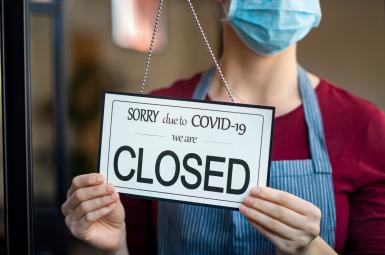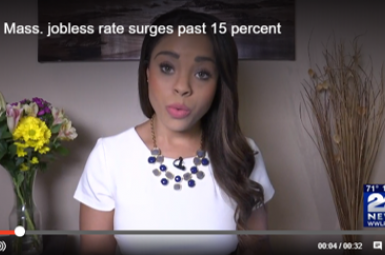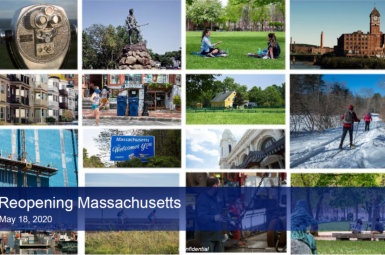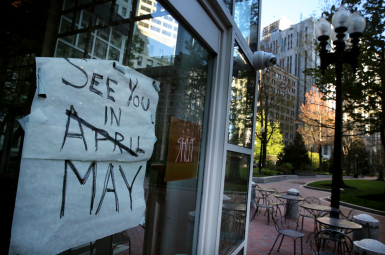Doug Howgate, executive vice president of the Massachusetts Taxpayers Foundation, said he thinks the state is right to take a careful approach with its federal aid and that it’s important legislators consider how the American Rescue Plan’s additional funding, such as for education and child care, will be used. “You don’t want to make decisions in a vacuum with the $4.5 billion,” Howgate said, “without thinking through where all those other resources are going as well.”
The job loss related to COVID-19 has placed an unprecedented strain on our economy and our unemployment insurance (UI) system. The strain on the UI system creates two major policy challenges that require near-term action. First, unemployment taxes on employers are scheduled to skyrocket at the end of March, further hindering job retention and creation. Second, the state needs to repay federal loans (and associated interest) that have propped up the state’s unemployment system over the last year while also ensuring the state’s trust fund remains solvent and can meet benefit demand.
“There’s absolutely a concern,” says Eileen McAnneny, the president of the Massachusetts Taxpayers Foundation, which published a recent report on the impact of telework on Massachusetts. “People have more choices than they did before the pandemic.”
The rise in the number of people suddenly seeking unemployment is expected to add to the per-employee cost of unemployment insurance. This insurance is paid by employers — at a rate that's already among the highest in the nation — and it could go up by 60% next year, according to the Massachusetts Taxpayers Foundation.
Even then, the Massachusetts Taxpayers Foundation projected the state’s tax collections in fiscal year 2021 could fall $6 billion short of earlier estimates.
On April 28, Governor Baker announced the formation of a 19-member Advisory Board to determine the best ways to open the economy. Chaired by Lt. Governor Polito and Secretary of Housing and Economic Development Michael Kennealy, along with representatives from businesses, public health and municipal government, the Board’s role is to advise the Governor on how to balance the economic and public health concerns caused by the pandemic.
McAnneny now expects the shutdown to raise the state unemployment rate to 22 percent by the end of June. She projects that 323,000 jobs will be recovered by June 2021, but employment is unlikely to return to pre-pandemic levels before 2024. That will have a devastating effect on the state budget that goes into effect July 1, with revenues projected to fall by $6 billion, more than a third larger than the foundation’s forecast from just a month ago.
McAnneny said the foundation’s analysis was completed before Gov. Charlie Baker released his plan for the state’s reopening on Monday. She said the foundation’s analysis assumes that economic activity will resume this summer, but it will be slow and uneven, resulting in lower tax revenues. She said the expectation is that major employers will continue remote working, consumers will be slow to venture out to restaurants and retailers, and many of the unemployed will curtail their expenditures.
The Massachusetts Taxpayers Foundation, a budget watchdog group backed by businesses, estimated the state’s revenue for the next fiscal year could drop $3.9 billion, or 15 percent, below past projections. New York said revenues could fall by as much as $15 billion in its fiscal year that started April 1. Illinois is expecting more than $7 billion in lost revenue through July 2021.
This time around, the Massachusetts Taxpayers Foundation forecasts unemployment approaching 18 percent by the end of June, with 570,000 jobs disappearing in recent weeks. Many of those jobs will be recovered by next spring, but total employment won’t return to pre-crisis levels until 2022, the foundation predicts.







